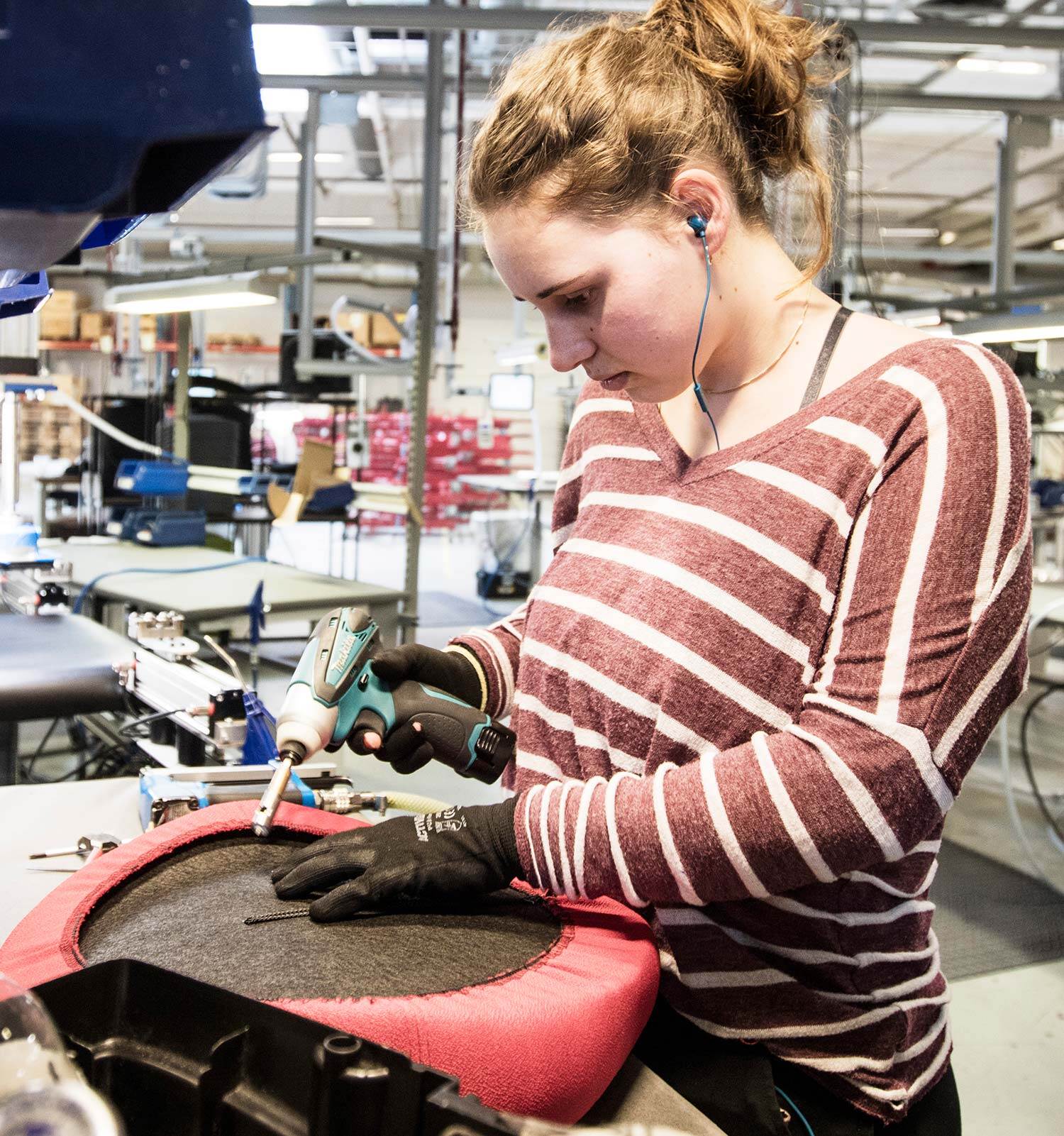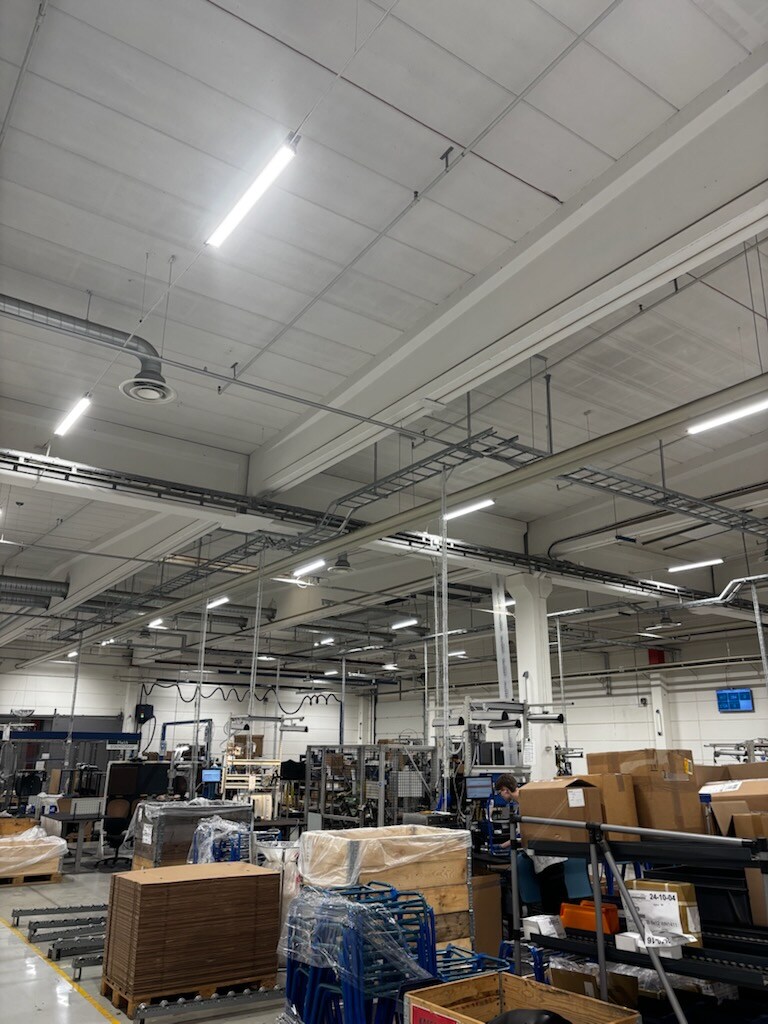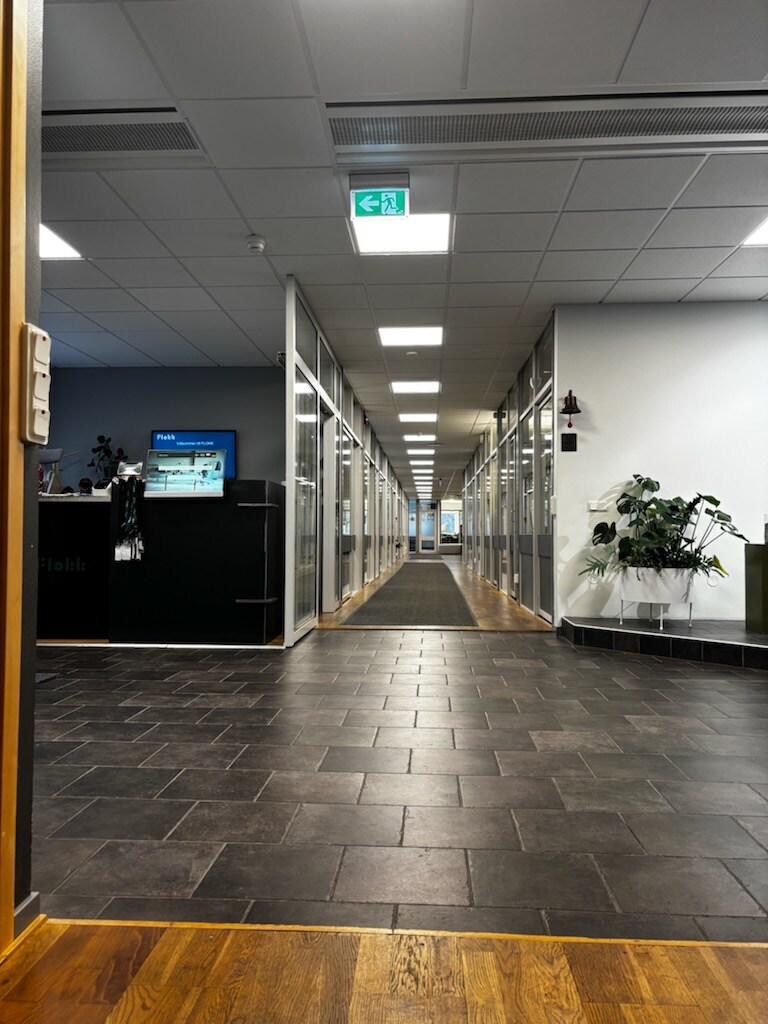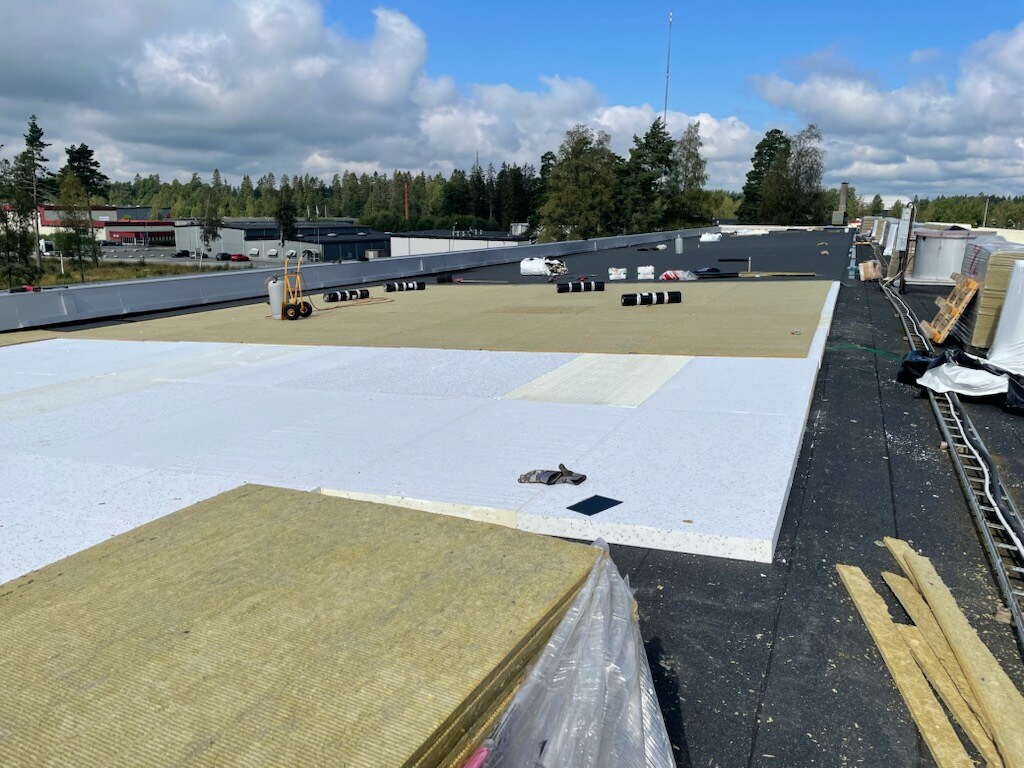Sustainability isn’t just about reducing impact; it’s about doing more with less, finding opportunities in the everyday, and making meaningful changes that add up over time. At Flokk’s major production facility in Sweden, this philosophy drives our commitment to smarter operations—combining thoughtful innovation with practical solutions to create a more efficient, future-ready facility. Through a mix of steady improvements and bold steps, Nässjö is becoming a beacon of operational excellence and environmental responsibility.
Smarter operations through practical innovation
In our Nässjö facility, we’re turning challenges into opportunities with thoughtful, results-driven improvements that prioritize efficiency. Rather than relying on dramatic overhauls, we’re rethinking the essentials of our operations, introducing systems and processes that create measurable benefits.
For example, lighting upgrades are transforming how energy is used throughout the facility. By replacing outdated fixtures with adaptive LED technology, we’ve reduced energy consumption by nearly 30% while incorporating motion sensors in high-traffic areas to further cut waste. Similarly, excess heat from machinery is no longer a byproduct—it’s redirected into workspaces during colder months, turning waste into a valuable resource.
These innovations are not about reinventing the wheel but refining it—proving that steady, practical changes can have a big impact.
Tangible results that deliver value
Every improvement at Nässjö is designed with clear outcomes in mind, ensuring that the benefits are both measurable and meaningful. Roof insulation upgrades, for instance, are reducing heating costs by hundreds of thousands of SEK annually, while smarter lighting systems are not only saving energy but also virtually eliminating the need for regular maintenance.
Even small changes, like capturing and repurposing heat, are driving significant energy savings. Together, these initiatives demonstrate how Nässjö is delivering tangible returns on investment, from operational cost savings to reduced environmental impact.





